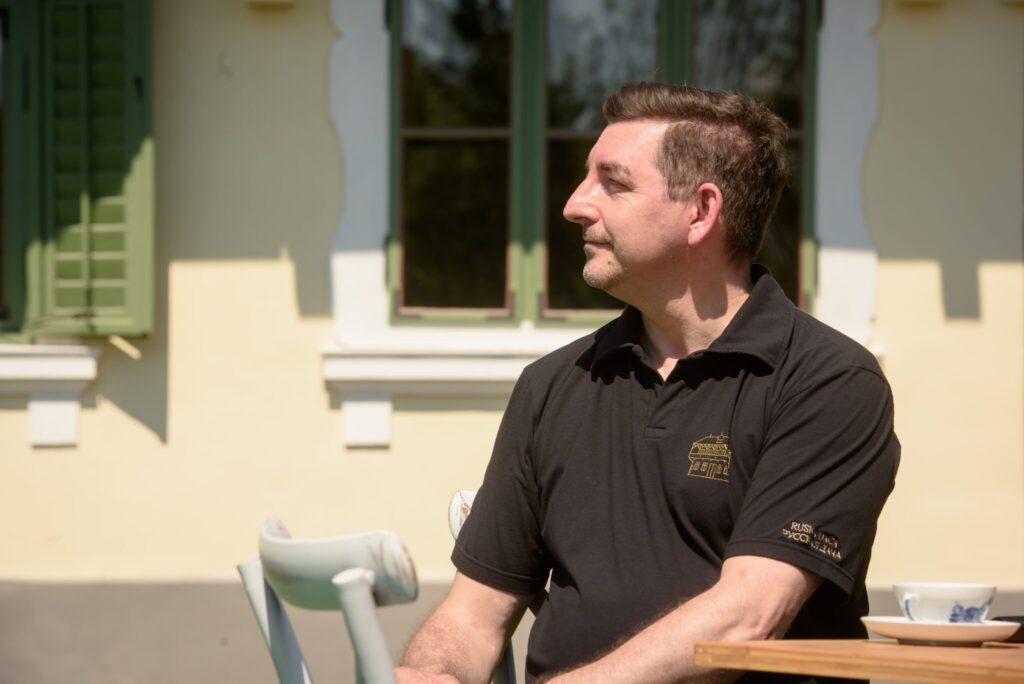The deep state is in a lot of trouble. They have sent a candidate who is not only a very conflict-prone, arrogant and hypocritical person but who is also heavily burdened with suspicions of corruption and financial malversation from her past, in connection with her husband, to the presidential race, where she has to face the non-corrupt and verbally non-conflict-prone candidate Anže Logar, who is considered to be extremely calm. You will, of course, not read about any of this in the mainstream media.
Namely, the candidate for the position of President of the Republic, Nataša Pirc Musar, and her husband Aleš Musar, have had business ties with the authorised investment companies’ baron Darko Horvat in the past, even though Pirc Musar assures that she has not seen him for more than 20 years now. Her husband was formerly a high-ranking employee of Horvat’s company Aktiva, and after he left, he was later the co-owner of the companies S-Real, Plama Pur, Eta Kamnik, and the venture capital company STH Ventures, among others. Independently of his links with Horvat, the husband of the candidate for the next President of the Republic, has also appeared in several other controversial financial stories.
The media outlet Siol recently reported that the businessmen Aleš Musar, Rok Habinc and Marko Konič are also active in tax havens. On the island of Jersey, which lies off the coast of Normandy in the English Channel and is under British rule, they own a company called S. T. Hammer, through which they control their business empire.
“Musar is one of the wealthiest Slovenians, often operating through companies based in tax havens in Europe and elsewhere in the world,” Siol wrote back when they first reported on this.
The newspaper Finance has also already reported on the S. T. Hammer company a few years ago. As they wrote, Aleš Musar, the husband of presidential candidate Nataša Pirc Musar, had in the past run the company S. T. Hammer and drained four million euros from it, thus allegedly harming the company, the other owners, creditors, and the state. Through the sale of shares in his own companies, Aleš Humar, or rather the S. T. Hammer company, where the latter was a director and a majority owner, obtained a purchase price of 4.1 million euros, while the capital and other damages were covered by the Sežana company HTG. However, HTG Sežana, which was a tourism company before the takeover of S. T. Hammer, has had its bank account blocked since the year 2011.
In 2016, Musar also bought the now-famous Russian Dacha house in Zgornje Gameljne at an auction from the bankruptcy estate of the GEC.IN company, which he recently wanted to – so it seems – abuse for the promotion of his wife’s presidential candidacy through the Olympic Committee, as he wanted to invite the Slovenian Olympians to the headquarters of his wife’s electoral campaign.
Although Pirc Musar defends herself with the very original excuse that she was not married to her husband when the controversial privatisation deals took place in the 1990s (they were, however, already a couple), not all of her husband’s deals are that old. At its peak, the Ljubljana STC Strojegradnje factory employed around 200 people and was, therefore, an example of a once successful construction company that gradually sank during the transition period. The company was part of the STC business system until 1997, when it was privatised and then passed into the hands of Horvat’s Aktiva company, which sold it in 2003 as part of a demerger to three former employees: Musar, Rok Habinc and Marko Konič. The aforementioned trio had thus gotten their hands on a successful company, but in reality, they were more interested in the location on which the company building stood, where they planned to build the prestigious K 66 residential neighbourhood. “In 2009, Musar, Habinc and Konič sent the company Strenio into liquidation due to a decline in construction orders. As a result, 127 people lost their jobs,” Siol reported at the time.
Among other things, Musar was also the co-owner of the Eta Kamnik company, where a controversial ownership dispute brought one of our largest food producers to the brink of collapse. According to Siol, the depletion of Eta and the dispute between the two camps of owners later led to their expropriation. The Sberbank bank thus cashed in its collateral at the end of 2012 and sold Eta at an auction to the Holding AG company, which was controlled by Musar, Konič and Habinc. The change of ownership was a bad consolation for Eta, as its loan has not been repaid to date, the web portal reported in 2017.
How much longer will Nataša Pirc Musar be able to play the game of an innocent bystander who knew nothing while her partner, who later became her husband, was privatising companies during the Slovenian economic transition? Outside observers would find it hard to distinguish between him and the Russian oligarchs who also profited from legal loopholes and financial malversations in connection with a corrupt government to enrich themselves at the expense of what were once public assets. Particularly now that the first candidate of the “freedom” forces led by Robert Golob has dropped out of the race and Pirc Musar has become the only one with the right left-wing pedigree for the presidency – who also has the blessing of the old forces led by Milan Kučan – we can be sure that she will be protected to the maximum by the media, and that by the time election day comes, no one will have heard of S. T. Hammer, SCT Strojegadnje, or the offshore business of her husband.
Andrej Žitnik


